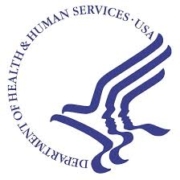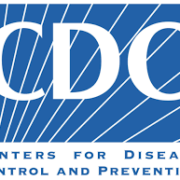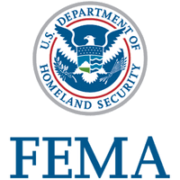The following is the latest health policy news from the federal government as of 3:30 p.m. on Tuesday, March 30.
Medicare Sequestration
In anticipation of possible congressional action to extend the two percent sequester reduction suspension, CMS has instructed the Medicare Administrative Contractors (MACs) to hold all claims with dates of service on or after April 1, 2021 for a short period without affecting providers’ cash flow. This will minimize the volume of claims the MACs must reprocess if Congress extends the suspension. The MACs will automatically reprocess any claims paid with the reduction applied if necessary. NASH has been a strong proponent of extending the suspension of the Medicare sequester.
The White House
COVID-19
- The White House has posted a fact sheet explaining that President Biden will announce that 90 percent of the adult U.S. population will be eligible for vaccination and 90 percent will have a vaccination site within five miles of their home by April 19. The key elements of the plan are:
- Expanding vaccines to 20,000 more local pharmacies, bringing the total to nearly 40,000 pharmacies across the country by April 19.
- Launching a new effort to get the most vulnerable and at-risk seniors and people with disabilities vaccinated.
- Expanding the number of mass vaccination centers across the country.
- The White House has posted a transcript of the March 29 press briefing provided by its COVID-19 response team and public health officials.
 Department of Health and Human Services
Department of Health and Human Services
COVID-19
- HHS, the CDC, and the Administration for Community Living (ACL) will spend nearly $100 million to help increase vaccinations among older adults and people with disabilities. With funding from the CDC, the ACL will award nearly $93 million in grants to aging and disability networks in every state and territory. This effort will include an additional $5 million in funding for national hotlines to help older adults and people with disabilities register for vaccinations and to connect them with local disability and aging agencies that can provide services and supports necessary to obtain them. Learn more from HHS’s announcement of this initiative.
Health Policy News
- HHS’s Substance Abuse and Mental Health Services Administration (SAMHSA) is accepting applications for FY 2021 screening, brief intervention, and referral-to-treatment grants. The purpose of this program is to implement screening, brief intervention, and referral-to-treatment services for children, adolescents, and/or adults in primary care and community health settings with a focus on screening for underage drinking, opioid use, and other substance use. Eligible applicants include public and private non-profit health care or behavioral health care systems such as hospital systems, pediatric health care providers, children’s hospitals, and community health or behavioral health centers, HMOs, PPOs, and FQHC systems. Applications are due April 19. Learn more from the SAMHSA announcement.
- HHS’s Center for Medicare and Medicaid Innovation has announced that its request for applications to participate in an aspect of its Community Health Access and Rural Transformation (CHART) Model designed to involve 20 rural-focused accountable care organizations will be delayed from April of 2021 to the spring of 2022. Learn more here.
Centers for Medicare & Medicaid Services
COVID-19
- CMS has issued section 1135 waivers to Texas, Nevada, and Kentucky. 1135 waivers give states greater flexibility to serve their Medicaid beneficiaries during the COVID-19 public health emergency.
Health Policy News
- In a message to state survey agencies, CMS announced that it has lifted the previously extended 30-day survey suspension for hospitals. Survey activity will resume in accordance with previous non-long-term-care guidance. Under the suspension, surveys had been limited to immediate jeopardy complaint allegations posing imminent danger to patients at the hospital, non-compliance with Medicare hospital conditions of participation, and matters requiring immediate action to be taken to protect the health and safety of patients. Hospital recertification surveys were suspended except for a subset of hospital re-accreditation surveys under guidance provided to the accrediting organizations. Hospital enforcement actions for deficiencies that did not represent immediate jeopardy had their termination date extended for at least 30 days. CMS is now lifting the 30-day limitations imposed for hospital surveys as of March 23, 2021. Among the resumed activities are reviews of non-immediate jeopardy hospital complaints, hospital plans of correction, desk reviews, on-site reviews, and work on open enforcement cases. Learn more in this CMS memo to state survey agencies.
 Centers for Disease Control and Prevention
Centers for Disease Control and Prevention
COVID-19
- The CDC has announced that a new study provides strong evidence that COVID-19 vaccines are highly effective in preventing COVID-19 infections in real-world conditions among health care workers, first responders, and other essential workers. These groups, the CDC notes, are more likely than the general population to be exposed to the virus because of their occupations. See the CDC’s announcement about the study and go here to find the study itself.
- The CDC has updated its data on COVID-19 variant cases in the U.S.
- The CDC has published research on symptoms of anxiety or depressive disorder and use of mental health care among adults during the COVID-19 pandemic between August 2020 and February 2021.
- The CDC has updated its information about infection control for nursing homes: how they and other long-term-care facilities can prevent COVID-19 outbreaks and respond if they do occur.
- The CDC has updated its evidence-based resources for health care providers caring for patients with underlying medical conditions who are at higher risk of developing severe cases of COVID-19.
- The CDC has updated its resources addressing how drug use and substance abuse disorder can affect the likelihood of contracting COVID-19 and the severity of their illness.
- The CDC has updated its list of underlying medical conditions that put adults of any age at high risk for severe illness from the virus that causes COVID-19.
National Institutes of Health
COVID-19
- In a preliminary NIH study of recovered COVID-19 patients, researchers found that T-cells in those patients recognize most COVID-19 variants and offer some protection against those variants. This suggests that vaccines may offer similar protection. The NIH notes that additional research is needed. Learn more here.
 Federal Emergency Management Agency
Federal Emergency Management Agency
COVID-19
- FEMA announced that it has amended 58 COVID-19-related disaster declarations to increase FEMA’s share of the eligible costs associated addressing the disaster activities covered by the declarations from 75 percent to 100 percent. See FEMA’s announcement here.
- FEMA announced that it will provide financial assistance for COVID-19-related funeral expenses incurred after January 20, 2020. Go here for information about eligibility and applications.

 In anticipation of possible congressional action to extend the two percent sequester reduction suspension, CMS has instructed the Medicare Administrative Contractors (MACs) to hold all claims with dates of service on or after April 1, 2021 for a short period without affecting providers’ cash flow. This will minimize the volume of claims the MACs must reprocess if Congress extends the suspension. The MACs will automatically reprocess any claims paid with the reduction applied if necessary. NASH has been a strong proponent of extending the suspension of the Medicare sequester.
In anticipation of possible congressional action to extend the two percent sequester reduction suspension, CMS has instructed the Medicare Administrative Contractors (MACs) to hold all claims with dates of service on or after April 1, 2021 for a short period without affecting providers’ cash flow. This will minimize the volume of claims the MACs must reprocess if Congress extends the suspension. The MACs will automatically reprocess any claims paid with the reduction applied if necessary. NASH has been a strong proponent of extending the suspension of the Medicare sequester. Department of Health and Human Services
Department of Health and Human Services Centers for Disease Control and Prevention
Centers for Disease Control and Prevention  Federal Emergency Management Agency
Federal Emergency Management Agency